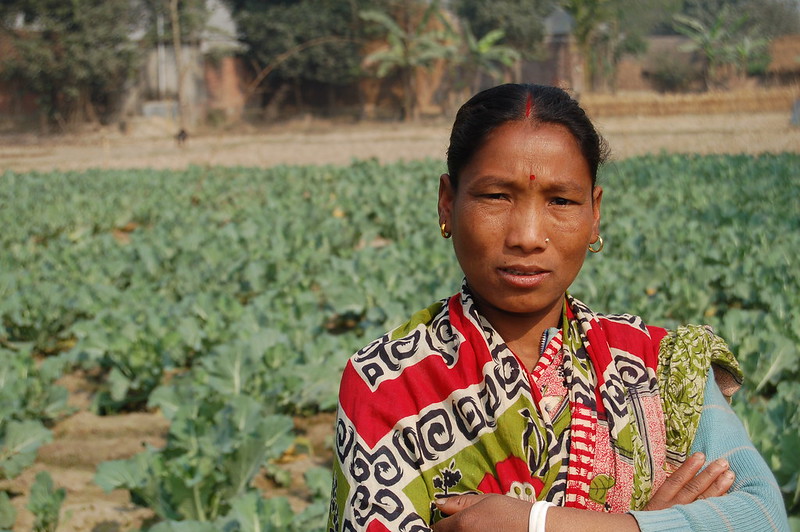Climate Change Policy

Smallholder farmers are among those most likely to suffer hunger from climate change
Smallholder farmers already face numerous hurdles to grow enough food for themselves and their families. They need sufficient fertile land, rains at the right time, health and strength to work the fields, freedom from conflict, access to inputs, and fair marketing opportunities. Climate change is an additional burden for smallholder farmers.
A changing climate not only means higher temperatures, but also longer droughts, greater flood damage, stronger storms, sea level rise, and spread of human, livestock and plant diseases.
Many of the farmers the Foodgrains Bank supports are already noticing changes, such as unpredictable rains and more frequent droughts.
Our member agencies are doing excellent work in helping farmers adapt to these changes—be it conservation agriculture, small irrigation schemes, or sand dams.
But this is a global problem. And it requires changes in national and global policies to effectively help developing countries—and those most vulnerable—cope with climate change.
What are we trying to do?
We are calling on the Canadian government to help developing countries adapt to climate change by contributing its fair share of funding to international efforts. At the Paris climate conference in 2015, developed countries, including Canada, agreed to a goal of mobilizing $100 billion a year by 2020 for developing countries, with funds balanced between mitigation (reducing greenhouse gases) and adaptation (enabling people to adapt to the changing climate). The $100 billion was not met by 2020, and negotiators are currently working on a new goal. The Foodgrains Bank encourages Canada to contribute it’s fair share, with at least 50% for adaptation, and to focus on the needs of the most vulnerable.
What have we accomplished?
Thanks in part to Canadian Foodgrains Bank supporters and our engagement in Canada’s consultations on its next commitment on climate finance, in 2020 the Government of Canada doubled it’s funding to help other countries address the impacts of climate change to $5.3 billion over five years. With this the Government also committed to increase adaptation funding to at least 40% and increase the use of grants (rather than loans) to 40%. Climate-smart Agriculture and Food Systems was also listed as one of the four thematic areas this funding would be focused on.
What are we still working on?
So far most of Canada’s climate change financing is supporting mitigation in other countries—efforts to slow climate change. We are urging the government to ensure that more goes towards adaptation—helping smallholder farmers and others adjust to the changes they are experiencing. This is the key priority for smallholder farmers.
We are also advocating that all funding should be additional to existing development assistance, so that other vital areas, such as health and education, aren’t neglected. Adaptation funding should be given as grants not loans. And it should be focused on those most vulnerable to climate change, including small-scale farmers.
With the Governments new commitment from 2021-2026, we are tracking where funds are spent and ensuring they are accountable, as we continue to push for greater contributions for those that need it most.
We are also advocating for sustainable agricultural practices, such as conservation agriculture, that can empower farmers to adapt to climate change, while also increasing food production.
Canadian Coalition on Climate Change and Development
The Canadian Coalition on Climate Change and Development (C4D) is a coalition of over 40 Canadian international development organizations working to share knowledge and take action on climate change. Canadian Foodgrains Bank has been an active member of this network, and currently serves as co-chair. Recent reports by C4D include: